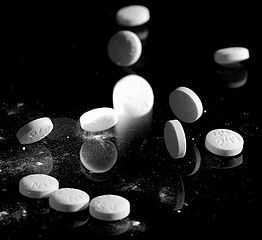
A pair of new studies detail the role of aspirin in the treatment of COVID-19, one estimating lower rates of in-hospital death and pulmonary embolism in moderately ill patients, and the other showing that blood thinners didn't decrease the need for organ support in critically ill patients.
Most beneficial for older, chronically ill patients
Today in JAMA Network Open, a team led by George Washington University researchers published the results of an observational study on the outcomes of 112,269 COVID-19 patients hospitalized with moderate COVID-19 at 64 US health systems participating in the National Institute of Health's National COVID Cohort Collaborative.
Patients were enrolled from Jan 1, 2020, to Sep 10, 2021. Median patient age was 63 years, 52.7% were White, 22.4% were of unknown race, 16.1% were Black, 3.8% were Asian, and 5.0% were of other races.
Before their final analysis, the scientists factored in the fact that aspirin recipients had higher rates of chronic kidney disease (39.4% vs 17.3%), chronic obstructive pulmonary disease (17.6% vs 10.3%), heart disease (55.3% vs 21.1%), high blood pressure (75.6% vs 43.9%), and diabetes (51.1% vs 27.2%). Higher proportions of aspirin recipients also had a history of aspirin use (46.9% vs 4.2%).
Read more...







